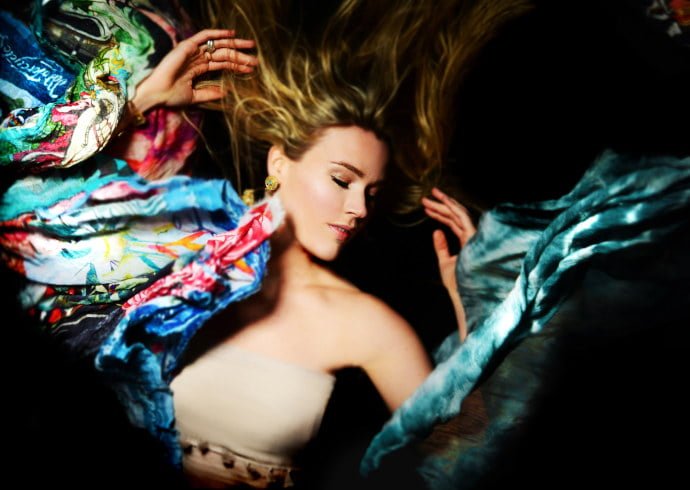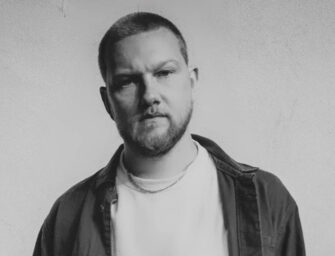The acclaimed Devon songstress explains how a simple conversation, about having a right to be wrong, turned into a hit
Joscelyn Eve Stoker, AKA Joss Stone, grew up in Devon, England and began her singing career at just 13 years old. Landing a record deal at 15, her debut album The Soul Sessions was released in 2003, but it was 2004’s Mind Body & Soul that made her the youngest British female singer ever to top the UK Albums Chart. It also won her two Brit Awards.
Right To Be Wrong was the second single to be released from that sophomore album, and peaked at No 29 on the UK Singles Chart, where it stayed for six weeks. Here Joss explains how she has Betty Wright to thank for this starting this one off…
Click here for more ‘How I wrote’ features

Released: 29 November 2004
Artist: Joss Stone
Label: Relentless
Songwriters: Joss Stone, Desmond Child, Betty Wright
Producer: Michael Mangini, Steve Greenberg, Betty Wright
UK chart position: 29
US chart position: –
“The way the records came out [the order The Soul Sessions and Mind, Body & Soul were written] is the other way around. I had Jet Lag and a few other songs before I went to Steve Greenberg, who signed me. I was about 14 when I wrote that and really I was still in the learning process of writing, so the leaders in those writing sessions were Connor Reeves and Jon Shorten, and I still write with them today.
“When I went to the label, Steve was like, ‘Great, this is lovely, you can sing soul music, you can sing live, that’s really nice. I’ve got this idea for a project and it’s all covers.’ I was kind of devastated by that.
“So I was doing these covers and, although I was very much forced into it and I’d already written beforehand, I was so worried about it coming across like a karaoke record. I had all these ideas in my head that it was going to be cheesy and I was so upset, but then the process started and I learned so much from all the musicians that I worked with. It wasn’t just about the covers, it was about the people that had been playing in the soul music scene for years before I was even born. They really taught me a huge amount, so without that record and without that forceful push, I wouldn’t have learned what I know now and my writing would’ve been very different.
“There was a lady called Betty Wright and she was the one that really, actually, deliberately taught me things. Not about writing – writing is more of a free thing; you just speak, in my opinion – but how you emote and how you hold the mic. Betty would teach me to not to be moving about the stage without keeping the mic in front of your face. Y’know, things that you wouldn’t normally think about. Once, she gave me a mic when I was in rehearsals, and Latimore was singing – he has a huge voice and he’s a very, powerful, strong man. She gave me the mic and said, ‘Go ahead,’ and I just burst into tears! I was like, ‘I can’t do it!’ So she pulls me out of the room and goes, ‘You never do that. When somebody gives you a mic, you sing in it. Don’t fuck around!’ That’s a lesson I’m never going to forget.
“Well honey, you’ve got a right to be wrong, it’s okay to try things.”
“But then with the writing, I wrote Right To Be Wrong with Betty Wright and that session was way before the Soul Sessions, and that was our way of getting to know each other. We’d sit in a room and we’d gossip like girls do. I might be like, ‘I want to try things out, but people won’t let me’ and then she’d say ‘Hmm…well honey, you’ve got a right to be wrong, it’s okay to try things,’ and so she came up with the title, and then it begins. It’s just conversation. For me, a song is just conversation in a melody.
“That attitude of ‘if you’ve got a mic, sing in it’ is Betty all over and it’s very much about going for it, so that’s what I tried to do. For about the first year of performing, I was so scared to even open my eyes. I’d sing a song with my eyes closed and my hair over my face, and then in between the songs, when there was no music, I’d be so horribly uncomfortable. Then I went to do a show called Divas and I saw Gladys Knight perform – I’d listened to her for a very long time before that – and I just thought she had something so calm about her, like she’s an angel or something, but she’s a very strong woman at the same time. I looked at her and I thought, ‘That’s what I have to do. I just have to pretend to be confident, then people will not feel so uncomfortable watching me.’ And it completely changed my whole performance and then I just said, ‘Okay, even if I’m shitting myself, I’m just going to make out like I’m not!”
Find out more about Joss Stone’s music, live dates and more at jossstone.com
Click here for more ‘How I wrote’ features


































Related Articles